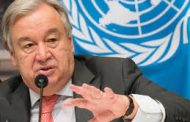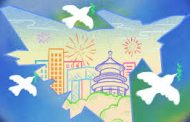It is obvious that there is a prompt response to the appeal made by Prime Minister, Dr. Abdullah Hamdok, urging the Sudanese people – at home and abroad – to support the Transitional Government (TG) financially. The Prime Minister reiterated that the TG had taken over a heavy legacy from the demise militarized Islamists’ regime of Omer Al-Beshir. Rampant corruption and mismanagement has left the country in bankruptcy. He explained that as the TG is trying to handle the grave problems and challenges, the Corona Virus pandemic has aggravated the situation.
It is a smart initiative to call upon all Sudanese to participate in making the transitional period a success amid great conspiracies and predicaments. The initiative is labeled “Standing up for our country (al goma laik ya watani), the peoples’ campaign for building and rehabilitation” – based on our unique values and traditions of “Nafeer, takaful and murruwa” (mobilization for self-help, collaboration and mutual support). A special fund is ready to pool the donations.
Yes. It is a good initiative but I think the crisis needs a different approach of re-prioritization. This fund of (Nafeer/popular donations) is to be a secondary supportive element that could rank third or fourth on a scale of more effective alternatives.
If I am in a position to put forward some suggestions to the TG, it might be advisable to approach the economic crisis through such policy measures as:
- A rapid trial of the detained leading figures of the defunct regime to restore the public money taken by them and their corrupt adherents.
- The TG should control most of the production and marketing of gold – leaving a limited percentage to the private sector. It is reported that about 70% percent of the gold produced in Sudan is smuggled.
- Combating smuggling which drains a great deal of the subsidized commodities– the majority of which are strategic goods such as fuels, wheat, sugar and gas. It is reported that the leakage of these goods reach as far as West African countries. This creates scarcity in basic goods that impact the low-income groups and the poor who already suffer from a continual deterioration of the standard of living and a perpetual decreasing of the purchasing power of the Sudanese currency.
- Pursuing new policies on dealing with the Sudanese expatriates by adopting incentive policies that can attract their capitals for domestic saving, investment and consumption which they used to direct to other countries due to the unfair policies adopted by the ousted totalitarian Islamist regime of Marshall Omer Al-Beshir.
- Revising the investment act and policies that had not only discouraged the foreign investors but also forced the national ones to flee to other countries which have got more favourable climate as well as conducive conditions to invest their capitals.
- The TG has to channel most of the money gained from the above-mentioned sources to rehabilitate agriculture and revitalize industry.
If these alternatives are to be properly adopted one may maintain that the TG may not need such an appeal only in time of disasters.









